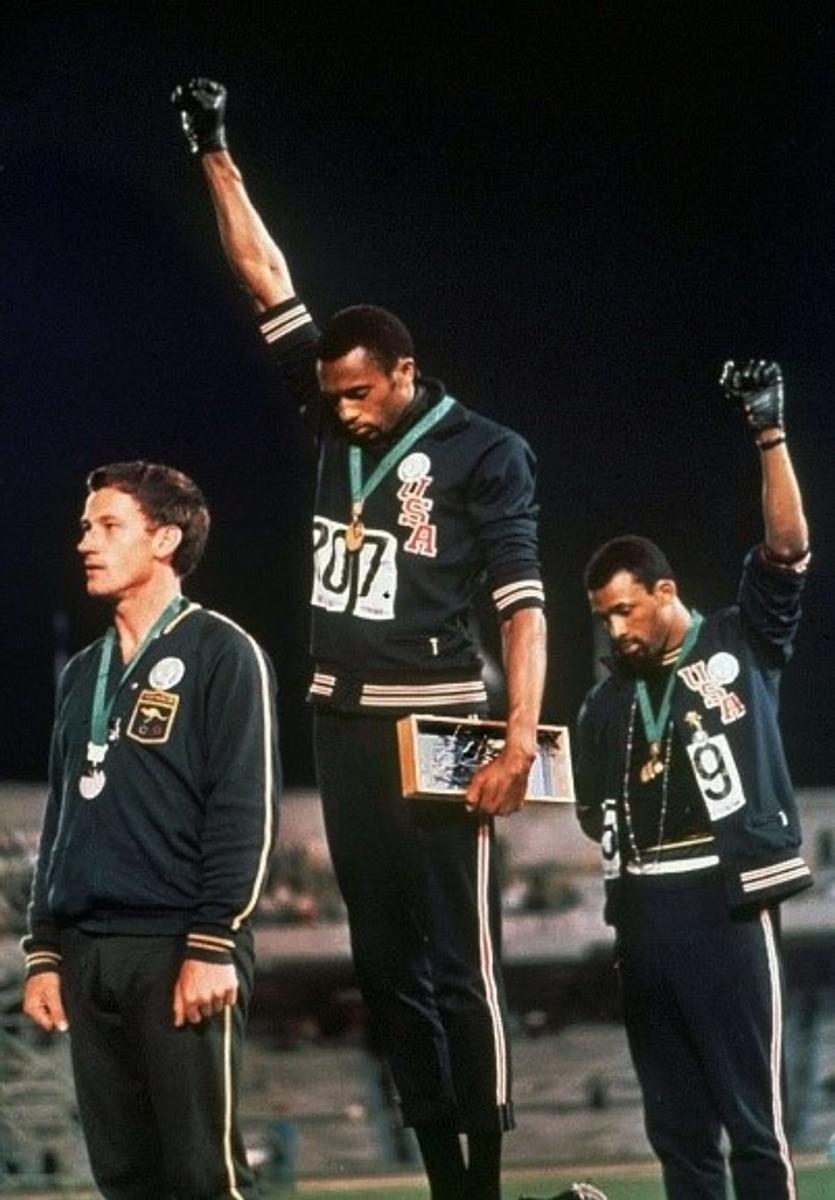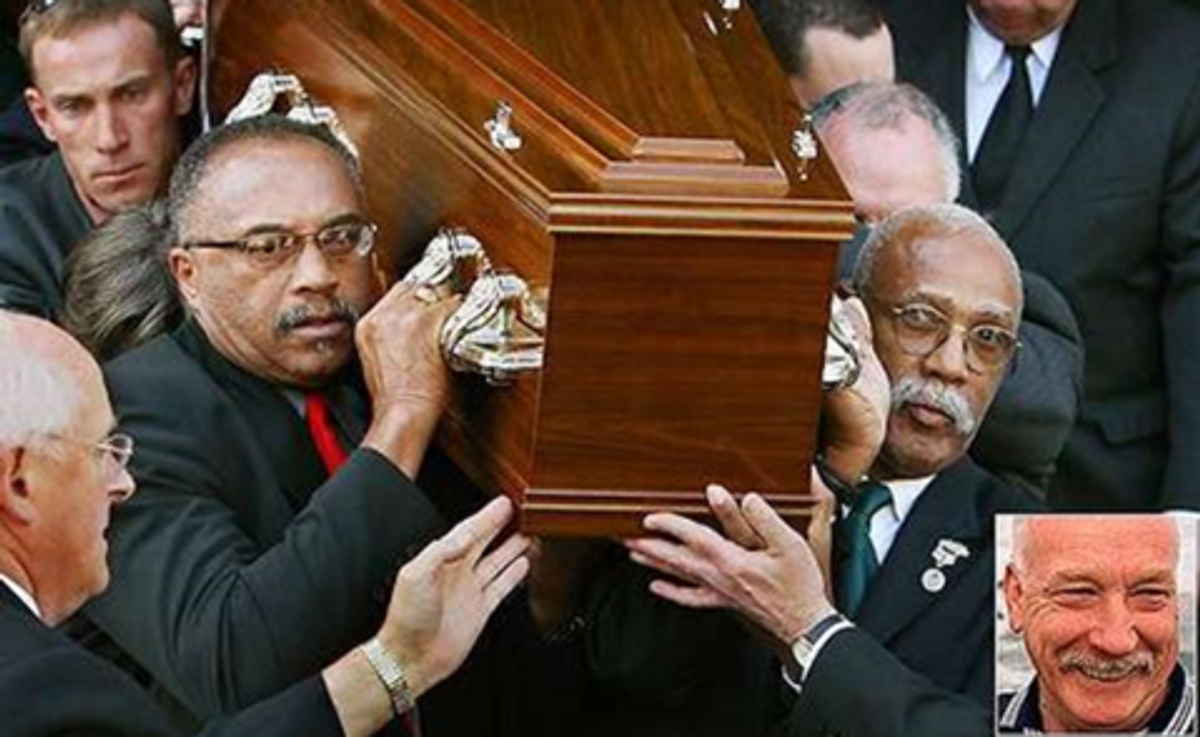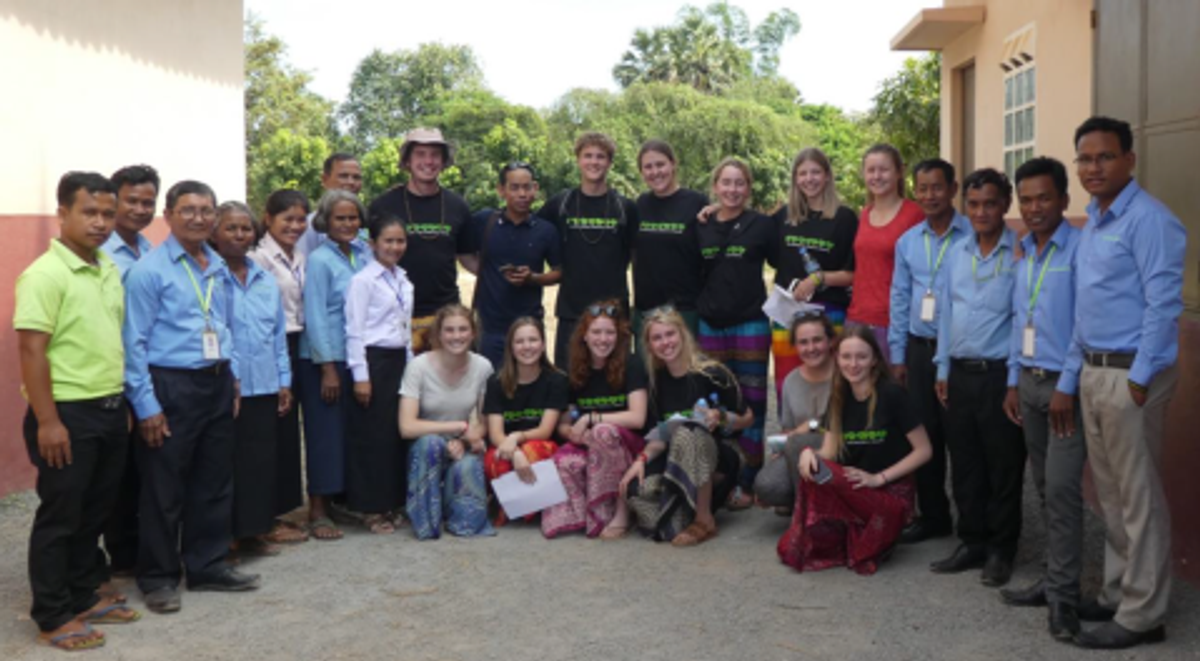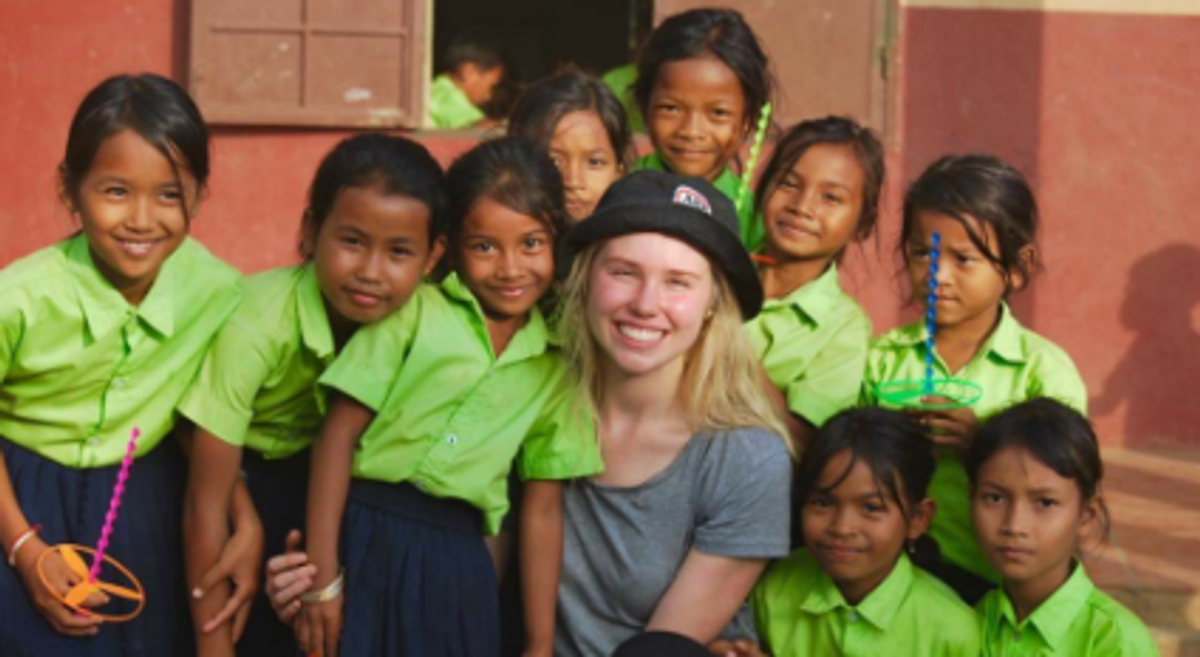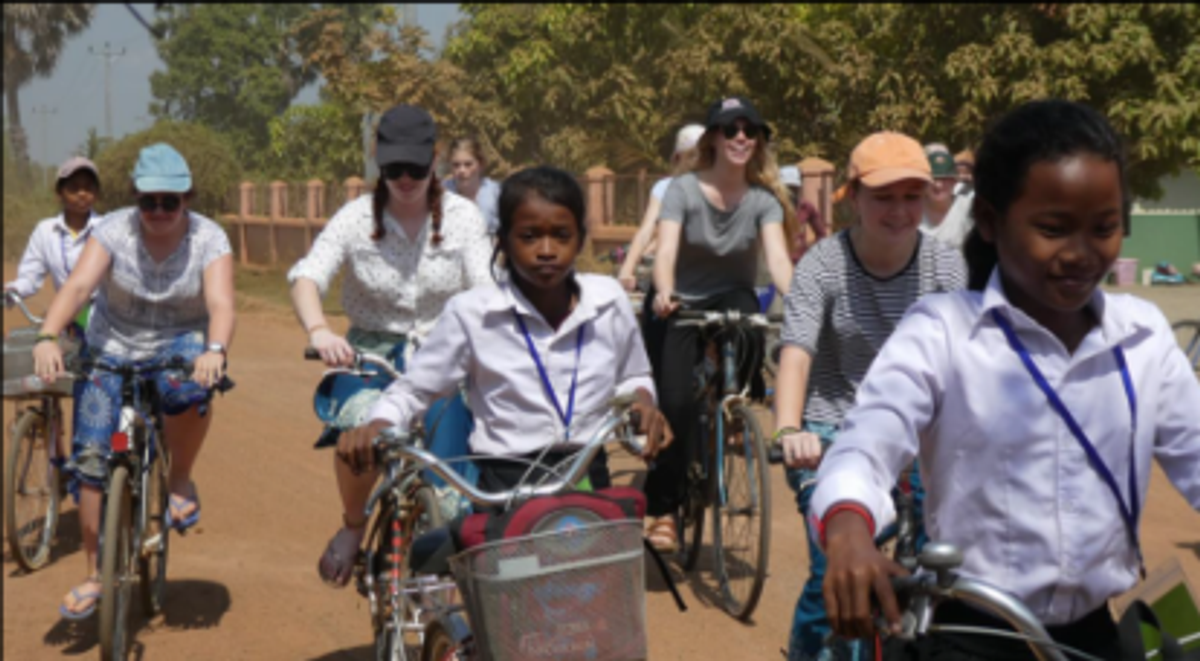Message from the Chaplain
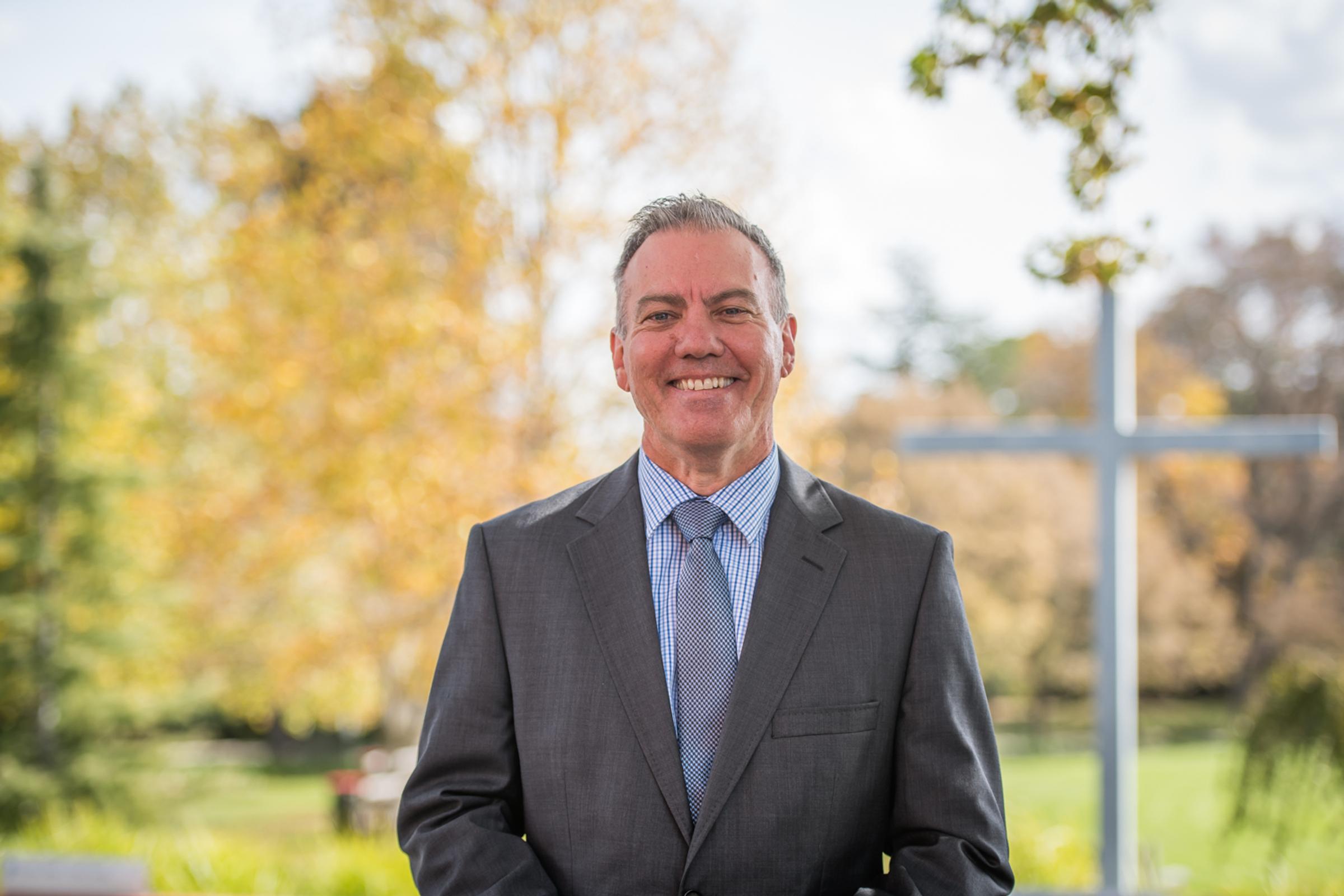
Whoever does the will of God is my brother and sister and mother
Then Jesus’ mother and his brothers came; and standing outside, they sent word to him and called him. A crowd was sitting around him said to him, "Your mother and your brothers and sisters are outside, asking for you."… And looking at those who sat around him, he said, "Here are my mother and my brothers! Whoever does the will of God is my brother and sister and mother." (Mark 3:21, 31-35)
This week at the Senior School Chapel, we reflected on qualities of leadership. From this image, students recognised that leaders protect their teams from negative forces. Also seen was the need for people to take a stand against injustice. It takes a good deal of courage to stand against injustice in order to defend the vulnerable and the poor.
Some of you may be old enough to recall the momentus occasion at the 1968 Olympics in Mexico City when two African-American athletes stood with their fists in the air at a medal ceremony. This simple act of protest was so significant, the third person in the photo is often deleted from the shot. It is the third person, an Australian by the name of Peter Norman, whom I wish to speak of in terms of leadership.
Peter Norman won silver in the 200m sprint. He was so fast, he beat an American of African descent. He was so fast, his time in that race remains the Australia record to this day. So what do he do in terms of leadership?
To answer that, you need to know that at the 1968 Olympics there was an organisation established in America called the Olympic Project for Human Rights. It protested racism no matter in what country: America or Australia or elsewhere. Not surprisingly, most were African-American.
Carlos and Smith planned to carry their shoes to the podium in protest of the poverty and the discrimination of African-Americans and others experienced around the world. They did this. But it was Peter Norman who had the idea of the gloves. Norman had just one pair but suggested that they wear one each. When they asked if Norman wanted to be a part of the protest he did not hesitate to be part of this peaceful protest.
Another aspect to the protest was wearing an Olympic Project for Human Rights badge. An American Rower heard that a white Australian was going to be part of the protest and offered his badge to Norman. (It is the white circular badge seen on their national uniforms). Now this may not seem like much of a protest, but remember that this is 1968.
In 1968, the White Australia Policy was still in force, it was overlaid with other policies of Assimilation and Integration, but it was still being enforced against non-white persons was common. In 1968, indigenous children were still being stolen from their families.
By wearing that badge, Peter Norman was making a statement about Australia as well as America. Carlos and Smith warned Norman about expected consequences. 1968 was the year President Kennedy and Martin Luther King were shot. When Carlos recalled the conversation, he said this: “I expected to see fear in Norman’s eyes, but instead we saw love.”
Four years later, at the 1972 Summer Olympics that took place in Munich, Norman wasn’t part of the Australian sprinters team, despite having run qualifying times for the 200m thirteen times and the 100m five times. He qualified for the Olympic team 18 times but was denied a place on the team because he stood with Carlos and Smith. The repercussions did not stop there. He was shunned in Australia. He managed to sometimes work as a PE teacher and occasionally in a butcher’s shop.
He had one chance to in all the following years, to save himself: he was invited to condemn Carlos and Smith’s gesture. In exchange he would receive a pardon from the Australian Olympic Committee and he would be allowed to be part of the organization committee for the 2000 Sydney Olympic Games. Norman stood firm against the pressure and he never condemned the choice of the two Americans.
Even though he was one of the greatest of Australia’s athletes, he was not allowed to march in the 2000 Olympics with the other Olympic greats. In 2006, Norman died. When he was being buried, his two old friends, Carlos and Smith, carried his casket.
Finally, in 2012, the Australian Parliament apologised for the wrong done to Peter Norman by Australia in failing to send him to the 1972 Munich Olympics and belatedly recognised the powerful role that Peter Norman played in furthering racial equality.
Peter Norman was a leader: strong, quiet, never celebrated and essentially forgotten.
When asked if he held a grudge against Carlos and Smith because of what he had to endure, he said; “I could not have been more proud to be a part of that moment.”
The decision to lead and to stand against the weight of injustice needs to be made before we are confronted with the decision to do so or not. We need to decide to do the right thing before we are faced with a decision of having to choose right from wrong. This is certainly expected of those in positions of leadership, but we can all be leaders in that regard.
There is a commandment to love others; that is what it takes to be brothers and sisters of Christ, and children of God.
CamKids
At the end of last year, a number of seniors travelled to Cambodia to visit the children of CCC School in Kompong Speu province. The CamKids fundraising is to raise money for these children. At present, we pay for the education, uniforms, shoes, bags, books and bicycles and bike repairs for 96 children.
Our last fundraising was the School Social on Thursday 31 May. I thank those who attended and those who supervised the evening. A special vote of thanks is especially owed to Mrs Jones and the Prefects for organizing the event. The Social raised just over $3000 for CamKids.
There will soon be expressions of interest sort from the current Year 11’s for the next trip to Cambodia which is planned to take place immediately after the end of Term 4.
If your child is in Year 11 and is interested in visiting our sponsored children, please contact either Miss Cole (Head Tutor of Douglas House) or me, the Chaplain, Mr Worrad.
Same-sex Marriage
The law has changed to allow people of same gender to marry in Australia. However, it has done little to bring peace within Church congregations about homosexuality. Each side of the conversation draws upon Scriptures to justify their stance on homosexuality. Within the Uniting Church in Australia (KWS is a School of the Uniting Church – just saying!) there is a determination to remain united, loving and respectful towards those whose opinions differ to our own. Fundamental to the discussions is an informed understanding of the relevant Scriptures. There is opportunity to hear from a world-renowned Biblical scholar on the matter.
You are invited to attend a talk by Professor Bill Loader, entitled ‘Same-Sex Relations: a first century perspective. Listening to the Biblical witness.’ It will take place on Tuesday 26th June from 7:30pm – 9:00pm in the Wesley Church, Orange (a couple of doors down from the RSL in Anson Street). Entry is free.
Prof Loader’s work on sexuality is well known and respected for its balance and respect for the ancient texts. At a recent Australian Anglican Bishops’ conference the retired conservative former Archbishop Dr Peter Jensen of Sydney Diocese observed that Loader’s presentation on the same-sex issues in the New Testament was the best he had ever heard, though he differed in how one now should apply it.
Mr Phil Worrad
Chaplain


